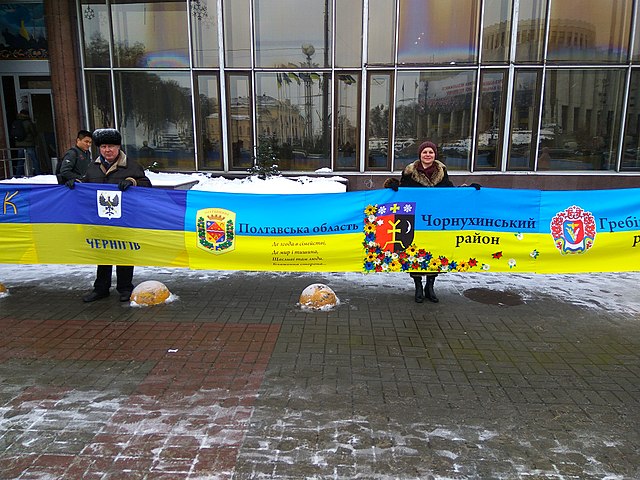Freed Kherson tells story of a united people

Ukrainians protest Russian forces
Carilyn Pointer - In the early days of the Russian Ukrainian war, the city of Kherson was taken by Russian forces. Since then, Vladmir Putin has tried to “assimilate the citizenry and stamp out Ukrainian identity.” His campaign has failed though due to public pushback, and the use of ideological power.
Ideological power is the ability to get others to do what you want, willingly. If successful, the people will follow the political goals that are of greater benefit to the more powerful, because that is “what is done.” Russia aimed to assert ideological power over the Ukrainians they overtook. They used propaganda, military presence, banning the national anthem, and even prohibiting the speaking of Ukrainian. Their hope was with enough fear and power asserted against them, the people would stop resisting and accept the new normal. They hoped their material power would be sufficient to keep control and eventually assimilate their entire culture and people into Russia. In Kherson, the opposite happened. People banded together against the propaganda forced upon. They rejected the new norm, and instead continued to speak Ukrainian, waved flags, and paid in Ukrainian currency: Anything that kept their identity and banded them together as a group. They used Russia’s own trick against them and used their power as citizens to assert their loyalty to Ukraine and their people. Ideological power is an effective weapon, and the Ukrainians stepped up to the challenge and used their voices to band together.
Ideological power can be used by any group if deployed successfully, in this case the Ukrainians against an invading country. In other places, ideological power is what keeps people paralyzed and frozen as seen by the Mexican Cartels. The lesson? The people have more power than is often recognized. They only need the literacy to use it.

